Pulhams on Point
Published: 28/09/19 By: Kathryn Pulham
Bourton-on-the-Water operator Pulhams Coaches has confounded the pundits and made its rural territory its own to grow. But it hasn’t come without razor-sharp focus on its customers
There’s a tendency in the coach and bus business to assume that, to grow, you need to be next door to a major conurbation.
Or maybe that’s just me, projecting. Pulhams Coaches certainly shows that a rural location need not hamper growth. Indeed, the villages sprinkled like gold dust over the unutterably gorgeous Cotswolds countryside are a source of its longevity.
Andy and Kathryn Pulham have inherited a staggering 139 years of history, surely making Pulhams one of the longest-established operators in the country with a lineage traceable back to William Pulham’s horse-drawn service to the communities around Bourton-on-the-Water which carried goods, animals and people in and out of Cheltenham.
The first of Pulhams’ home-to-school services started in 1927, utilising two Chevrolet ‘charas.’ It was the very rurality of the Cotswolds which then, as today, were populated by farming communities, which made the school bus a necessity. To this day, schools remain a major part of Pulhams’ business and, indeed, the original Moreton to Cheltenham service is still run. Follow the business’s timeline elsewhere in this feature.

Andy Pulham
In latter years, Andy’s dad, David, co-owned and ran the business with his cousin Roger Pulham until, in 2000, David tragically passed away, aged just 60. Andy was doing maintenance for the fleet at the time: “He’d talked about buying his cousin’s share. But at that point, I’d never been involved in running a coach business,” he says.
Andy had sailed through his British Leyland apprenticeship earlier, thanks to his lodgings, he says: “I was one of 35 chosen for the apprenticeship from 2,000 applicants. Most of the apprentices went home every night, but I was away from home in lodgings with an elderly lady, so I had nothing to do in the evenings.
“While they were out with friends at the pub, I was studying.”
Thankfully Roger stayed on and, with Andy, continued to run the company: “2007 was decision time,” says Andy. Roger wanted to sell his share, and while Andy was keen to take it on, he had some misgivings.
“I felt the only way I could carry on the family business was with some support. Thankfully, Kathryn was willing to join me.” Kathryn’s background in finance at a local authority proved a perfect fit.
Much has changed in the interim, of course, not least of which has been the move, in 2012, to Pulhams’ current premises on Bourton Business Park, just a stone’s throw from one of the tourism honeypots of the area. (Indeed, if you fancy exploring the Cotswolds, Pulhams’ can help with that, too, selling Cotswolds Discoverer day tickets which access their own bus services and neighbouring operators’ plus local rail services.)
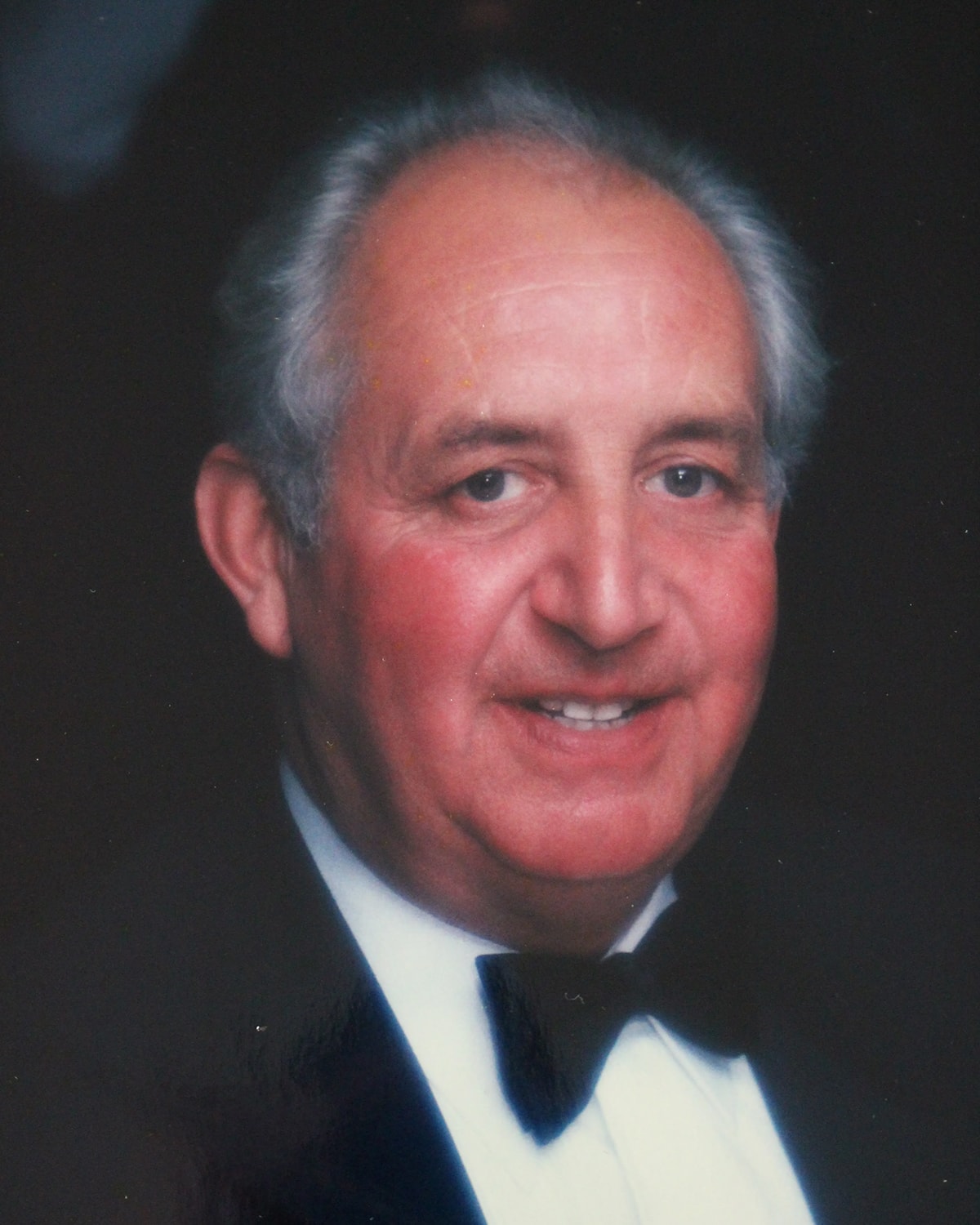
David Pulham
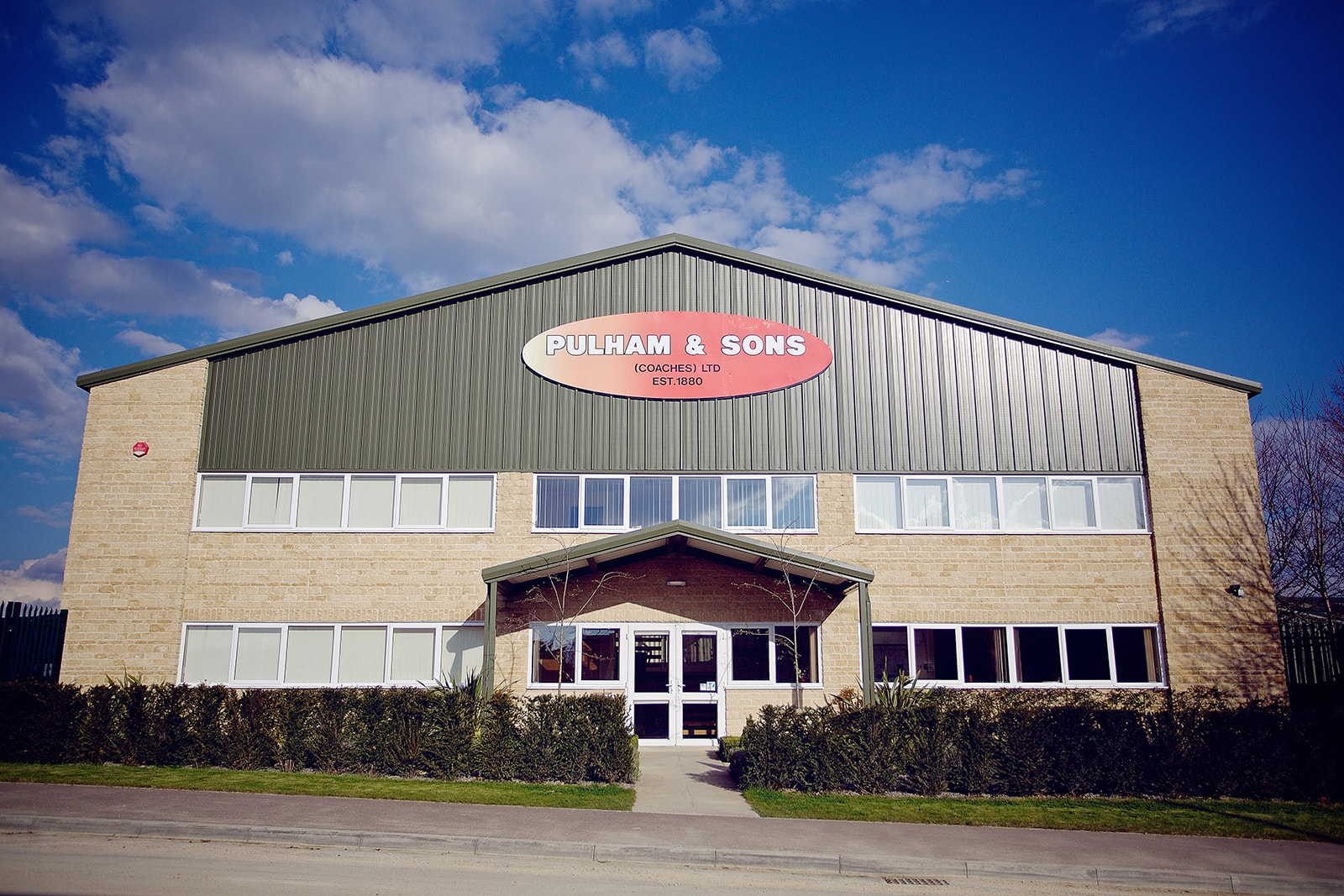
Pulhams Depot in Bourton-on-the-Water
The Pulhams’ depot is modern and very smart indeed, with nicely-appointed offices and a huge expanse of yard area together with a four-bay workshop with mezzanine. It’s got a VOSA ATF test lane which Pulhams runs four days a week and, says Andy, has generated a steady income. In addition to the pits, Pulhams has vehicle lifts including a new one from TotalKare.
“We don’t do maintenance for other operators except a little for a local haulier,” said Andy. The fleet’s around 80 now, and Pulhams’ team came to the conclusion that there was the possibility of a log jam which might mean someone being let down. The engineering is managed by Chris Adams, Kathryn’s brother, who joined from a background in agricultural machinery.
Pulhams’ Business manager is Sue Gregory, a former business studies teacher who called Andy one day to see if there was a chance she could put theory into practice. Andy said she’s been exceptional, especially at maintaining good relationships with key clients: “There’s always a danger that businesses forget to call clients whose work causes them no issues, and start looking complacent. Sue doesn’t let that happen,” said Andy.
The company’s Compliance Manager is Andy Chard, who moved to Pulhams from Astons of Worcester, and ensures that drivers and vehicles are following their schedules and maintaining a good record of everything from maintenance to tachographs.
Winning formula
In the office, a line of awards underscore Pulhams’ successes, now amplified by its membership of the Guild of British Coach Operators. Andy pulham says membership has brought many benefits, including a chance to refocus on its back-office systems and procedures, ensuring they are the best they can be.
At the core of all good operation is the driving team. Pulhams has 110 drivers, full- and part-time, and unlike many operators, seems to have had little trouble recruiting as its business has grown: “The exception is part-time schools drivers – they’re getting harder to find,” says Andy.
“We do have the advantage of the bus services, and a fair bit of in-fill schools work which means we can create a full-time job a lot of the time.” With hourly rate starting at just over £10 and rising to as much as £15 for Bank Holidays, Pulhams is on par with many operators but Andy believes the key to retention is investment in the driving team.
“We now have the Trip app for our employees, which offers everyone an array of discounts and access to counselling and professional help with such things as debt management and mental health,” says Andy. The suggestion to use it came from former Epsom Coaches man, now a consultant, Steve Whiteway.
“We pay a fee every month for each employee. It not only offers a raft of benefits they can use, but also provides a central place to find our company policies, timetables, and other documents they need in their working lives. Our working procedures are quite rigorous and you might think this would put employees off working here. We’ve found quite the reverse; they always know exactly where they stand.”
Andy tells me that every new recruit gets a full day’s training in company policy and working practise. Some of Pulhams’ drivers are trainees, and while they do not pay for their driving training, are tied to repay the cost for the first three years with the company. Pulhams has also just enrolled staff in the Transport Benevolent Fund, which offers a range of financial and welfare benefits for £1 a week.
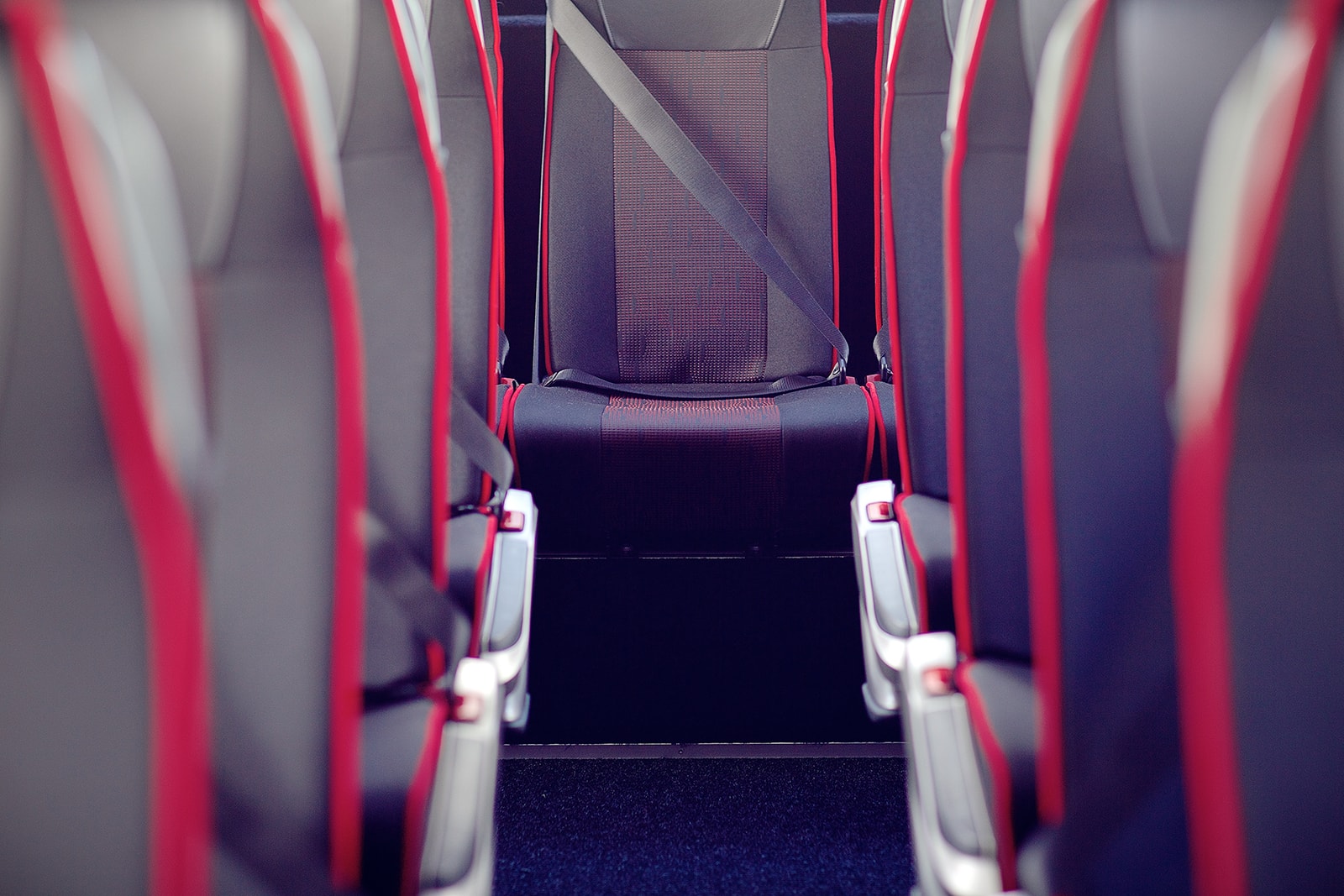
Of course, it helps that Pulhams has a modern fleet of vehicles: “The company used to be Volvo through and through but in 2013, we had some trouble with a vehicle which wasn’t sorted out to our satisfaction by Volvo. So we got a ‘seed’ Tourismo from EvoBus, and another in 2014.
“I think it’s fair to say it was a wake-up call for Volvo, and they reacted well, resolving the issue we had, so we now alternate between the marques. I’m a great fan of Plaxtons’ coaches on B8, which we’ll have on tour work for six or seven years then cascade them down to schools and other work.”
One of the older coaches in the fleet is a 2001 B10M Plaxton Prima 320, which is used for schools – though Andy says he’s earmarked it for a full restoration one day: “I don’t think the Tourismos are as ‘cascadable’ as the Plaxtons, but we’re very pleased with them. We tend to part-exchange them at about five years.”
Pulhams carried impress stock for its Mercedes-Benz vehicles.
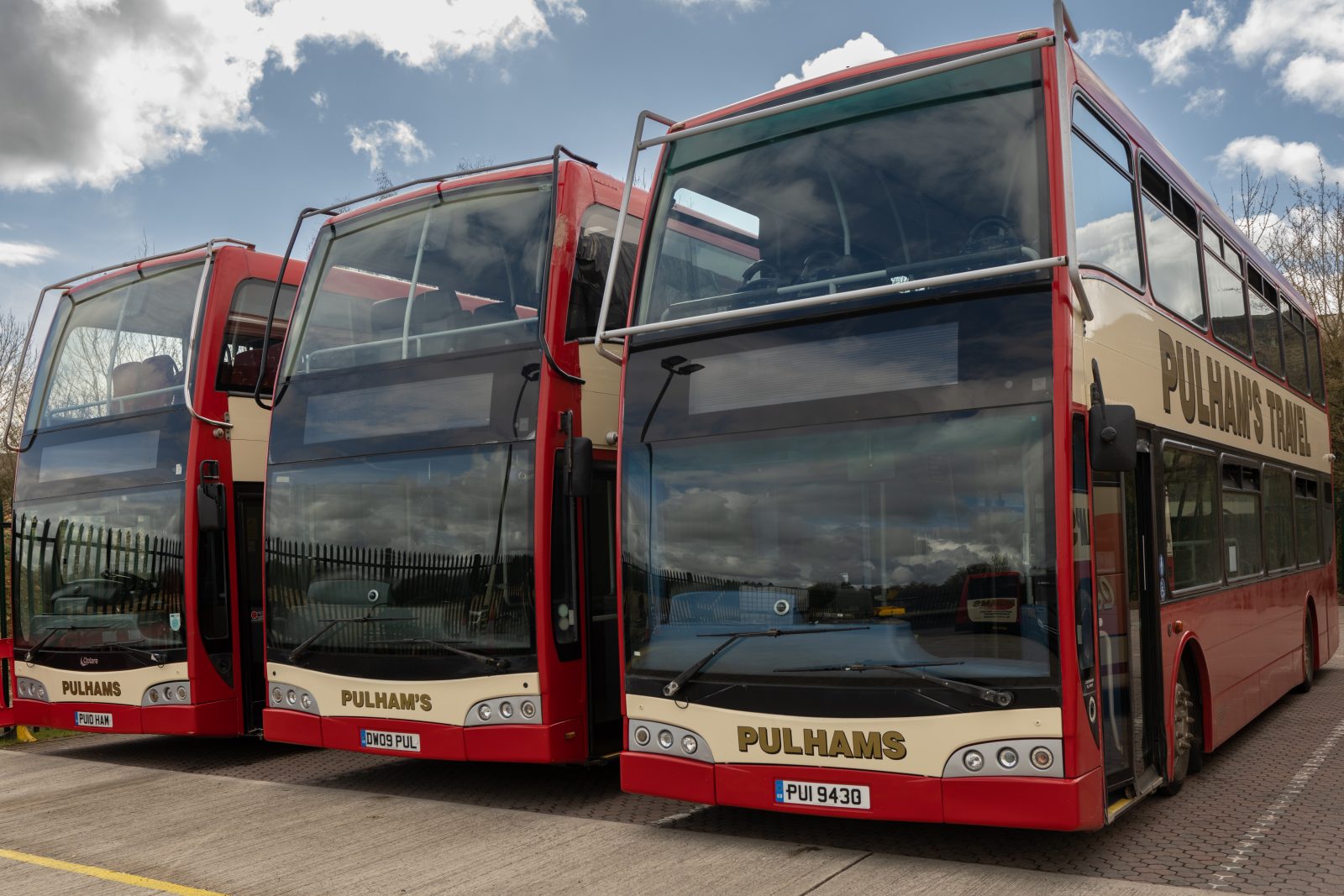
Schools specialist
Like many operators, Pulhams runs double-deck buses on schools, but they are a world away from the tired service buses usually associated with the school run. Pulhams has a mixture of marques, but all are completely refurbished inside and out to a very impressive standard.
Faced with seatbelting them, Pulhams has even had a Scania Omnidecker’s seats pull-tested itself to ensure it is completely sound: “The buses need to look attractive and be nice to travel on. Children are our next customers,” says Andy. That’s a comment which echoes through the whole of the company’s home-to-school services.
At a time when many operators report diminishing returns on home-to-school work, Pulhams is still burgeoning. A great relationship with the local authority and with the schools has seen the company build to 35 home-to-school routes, many of which are commercial.
With established relationships with several schools, Pulhams’ has the ‘ear’ of parents to the extent that it sells its bus passes on-line through its own on-line system overy successfully. Its relationship with The Cotswold School is a great example of how Pulhams has developed a true partnership role with the school, which benefits from easing the school-run log-jam of cars at the school gate. Pulhams engages with the school with charity work and sponsorship, and this cements the relationship.
“We sell 200 passes into The Cotswold School. I’m not being boastful when I say we have a huge reputation there. An example of this was when we were approached by a parent who wanted a service into the school from Chipping Norton. We explained that we needed 30 children to run a service, and the parent went away, set up a register herself, and found the 30 children. She even administered the service for the first year.”
Local Bus
The time Pulhams spends planning quality into its services pays off throughout the operation. A case in point is its recently-won 99 service, which connects two hospitals. It’s a stopping service which aims to carry NHS staff as well as patients, running between Gloucestershire Royal and Cheltenham General Hospitals via Arle Court Park & Ride and Cheltenham Town Centre.
Won at tender for the local NHS Foundation Trust in competition with four operators, including Stagecoach, two years ago, the half-hourly service uses four Citaros bought new with 41 leather seats, USBs and wifi. The wifi is an example of the attention to detail, because it offers two portals – one for NHS staff and another for the public. The NHS portal maintains connection with the NHS system, so a doctor can remain connected to the same network between the two hospitals.
Pulhams even bought four reg. numbers ending in ‘NHS.’ And the buses are tracked using a Quartix system with a portal through the Pulhams website so passengers know when to be at the stop.
“We’re now getting full buses,” says Andy. “I was told by the NHS that they’d deem it a success when doctors travelled on it, and sure enough, eventually a surgeon used the bus and emailed the NHS to say how good the service is.”
All Pulhams bus passengers are also encouraged to travel using its own stored-value ‘smartcard’, which costs £1 and can be ‘recharged’ on the bus, reducing cash handling and speeding boarding times. The card offers a 10% discount over the normal fares.
The 99 is one of 17 routes run by Pulhams, using a very smart fleet which includes the first MCV eVolution on Volvo B7RLE. Optare Solos are most prominent in the mix, reflecting the rural roads around Bourton.
Pulhams, like many independents, confounds the theory that having an incumbent national operator in the area stifles competition. Although some of Pulhams’ competition locally has ‘fallen by the wayside’ as Andy puts it, here’s an operator that proves that building and maintaining a reputation and tailoring services with care can overcome the ‘one size fits all’ approach of a giant, centrally-organised company.
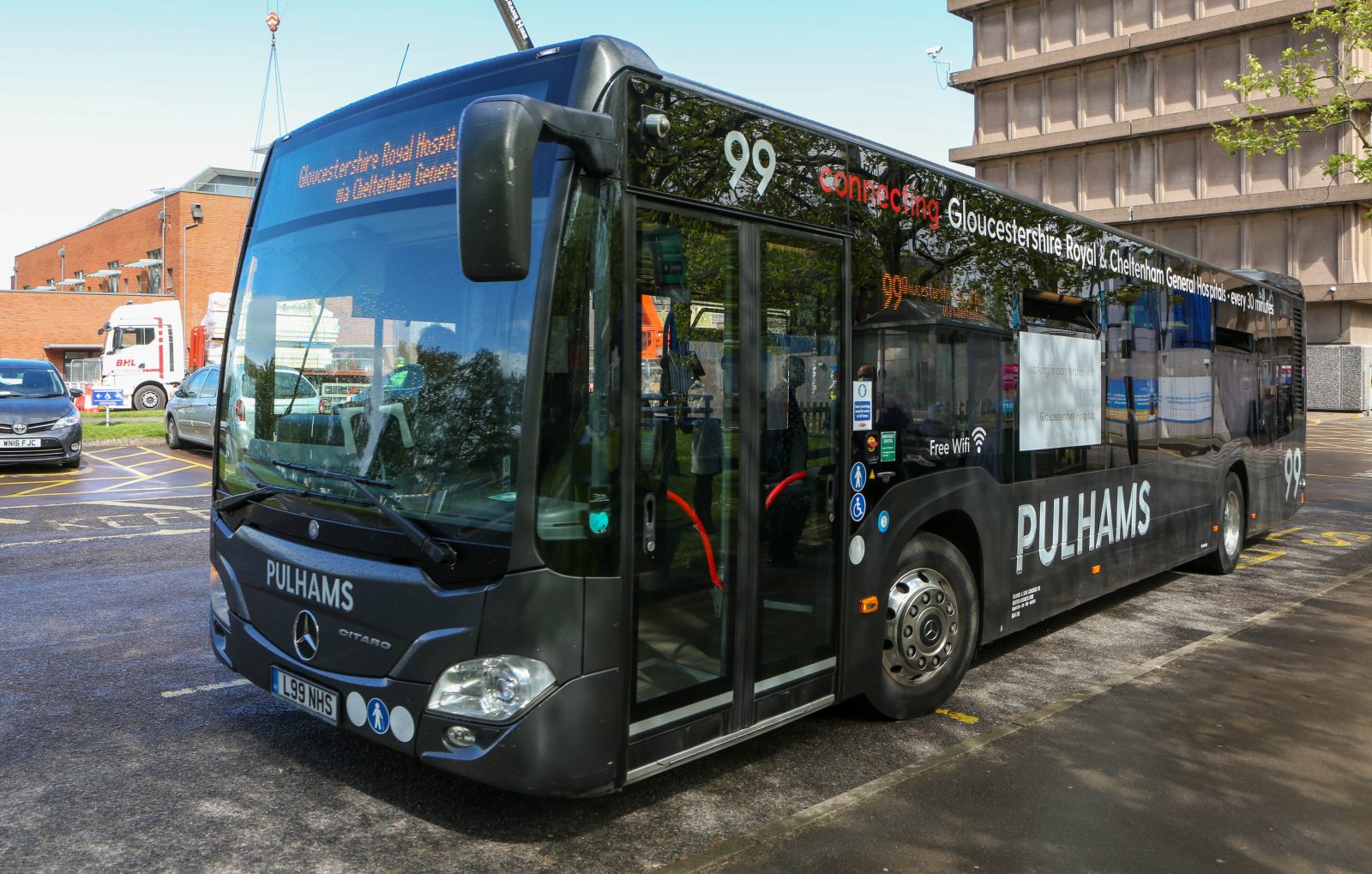
High spec Mercedes Benz Citaro's on Service 99
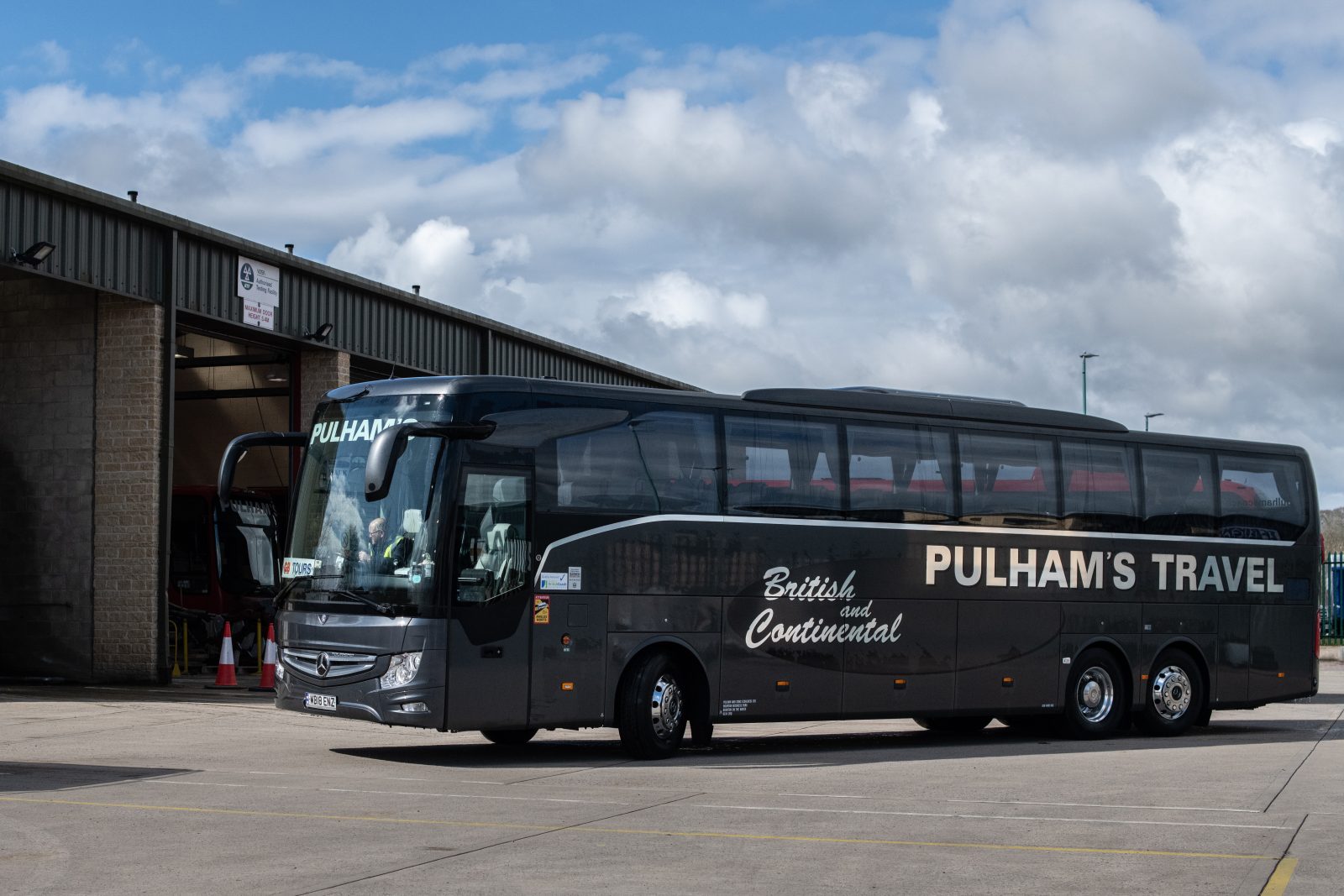
The Platinum livery contrasts with the traditional Pulham red-and-cream
On point with coach
Far and away the most important area of business for Pulhams is coaches, with an impressive fleet of sub-ten-year vehicles.
I have a suspicion that, if the company was starting from scratch today, it might not have a cream-and-red livery with such simple signwriting. You could call it ‘traditional’ or perhaps ‘time-honoured’ and, for Pulhams, with such a depth of history, it clearly works.
That said, latterly the company has created a Platinum Class with a very modern anthracite grey metallic livery applied to Tourismos. It offers a little more legroom and wifi for a premium price, and has the kind of corporate appeal that should propel it into that market. They gleam, side by side, in the yard, kept fresh with a Britannia coach wash.
The coaches are, of course, privately hired but a significant amount of their work is for GB Tours, a company which Andy says provides a top-quality product: “We don’t run our own holidays these days. Latterly, we ran six to eight tours a year but when we took a long, hard look at all the admin we needed to support them, including TOMS reclaim and so much paperwork, we realised we couldn’t get a good return for the effort.”
Based in Liverpool, GB Tours offers regional departures to minimise pick-up points, without making surprise charges for ‘optionals.’ Pulhams’ website – a very impressive on-line presence – has links direct to GB Tours’ booking pages. Andy says a good relationship with another GB Tours operator, Neil Hall at Lakeside Coaches of Ellesmere, helps deal with any operating issues.
“Incoming tourism is our biggest area of business for the coaches,” says Andy. “We work for an array of different tour operators, and have found this business offers us both a good margin and volume. Much of the work is relatively modest mileages, too.”
What’s the future?
Andy says he still has plenty of headroom, despite being hemmed in both sides by Stagecoach territory.
“I can see bus services continuing to grow,” he says, though he has serious concerns about the trajectory of local authority planning around public transport. For example, he feels that Real Time Passenger Information is still lacking, and bus shelters need replacing to make bus services more attractive and more transparent.
He also thinks councils could do more to coerce people on to buses. One local town thought it a good idea to encourage visits by offering free car parking at the weekend: “I think that’s the opposite of what should happen. Local authorities should be increasing the price of parking and using extra income to support bus and coach infrastructure.”
Will the implementation of Clean Air Zones and, for that matter, the ULEZ in London, have an impact on his fleet? “We acquire our vehicles through a mix of purchase, finance and lease… lease works well for Euro VI for me, because, to be honest, I don’t know what’s coming next.
“I’ve taken a look at the idea of retrofit but I don’t think it’s worthwhile. If you take a look at residuals for my 2014 Tourismos, they’re worth £25,000 less than Euro Vs from the same year. I can’t see how spending £15,000 to £17,000 on them is going to pay off. We have enough Euro VI I think, but at a push, I’d pay the £50 or £100 fee for a Euro V to get into the zone.”
Meanwhile, Pulhams is continuing its policy of fleet investment, though backing off a little following some big buying years. Andy hints that he may have something ‘a bit different’ at the coming Coach and Bus UK show at the NEC, but he’s not saying what.
You can bet your bottom dollar that, whatever it is, it will be the perfect fit for Pulhams Coaches’ customers.
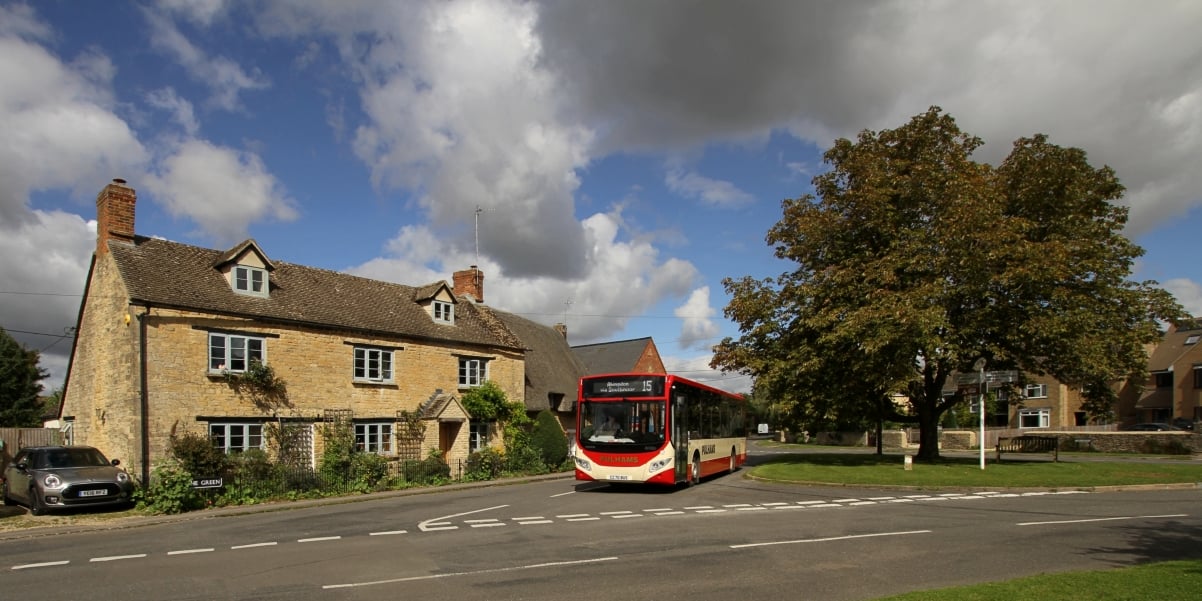
-
Pulham & Sons (Coaches) Ltd.
Bourton Business Park
Bourton-on-the-Water
Gloucestershire
GL54 2HQ - 01451 820369
- info@pulhams.co.uk
Our offices are open
Monday – Friday from 9:00am to 5:00pm
